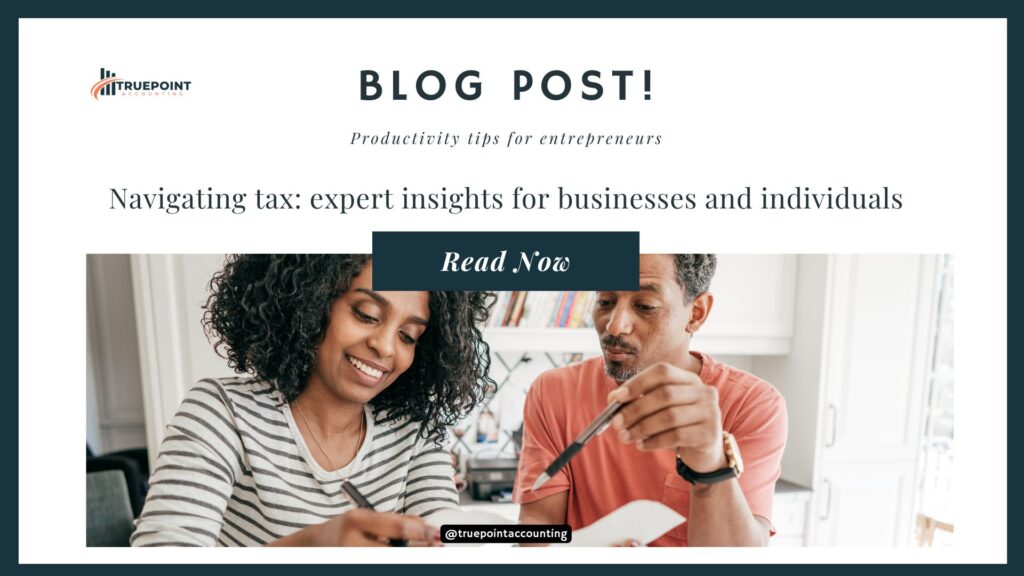Navigating tax: expert insights for businesses and individuals

Understanding and managing taxes can feel overwhelming for both businesses and individuals. However, with a thoughtful approach and the right strategies, navigating taxes becomes much simpler. This guide offers expert insights into tax planning, compliance, and strategies to help you save money, avoid mistakes, and set yourself up for financial success.
One of the most fundamental steps in managing taxes is understanding your specific obligations. Tax responsibilities differ based on whether you’re an individual or a business entity. For individuals, this typically includes income tax, Social Security, and Medicare taxes, while businesses may deal with additional layers depending on their structure. Sole proprietors, partnerships, corporations, and LLCs each face distinct tax requirements. It’s essential to be aware of these obligations from the start, whether that’s self-employment tax for freelancers or sales tax for retailers, as this helps maintain compliance and avoid penalties.
Growth is never by mere chance; it is the result of forces working together.
– James Cash Penney
Deductions and credits are powerful tools that can significantly reduce the amount you owe. For individuals, deductions like mortgage interest, medical expenses, and student loan interest can lower taxable income. Businesses also benefit by deducting operational costs, employee benefits, and office supplies, among others. Tax credits are equally valuable; the Earned Income Tax Credit for individuals or the Research and Development Credit for businesses directly reduce the tax owed. Being familiar with available deductions and credits ensures you don’t miss out on potential savings and allows you to maximize tax benefits.
Keeping organized, detailed records is critical. Accurate records of receipts, invoices, and financial documents support any deductions or credits you claim. For businesses, maintaining a separate bank account helps streamline the tracking of income and expenses, making the process much easier come tax time. Utilizing accounting software also simplifies record-keeping and enables you to generate essential reports quickly. When it’s time to file, organized records reduce stress and save considerable time.
For those who are self-employed or have income outside traditional employment, planning for estimated taxes is essential. Paying estimated taxes quarterly covers both income and self-employment taxes, which are typically due in April, June, September, and January. Neglecting these payments can result in penalties, so setting aside funds throughout the year to cover these payments is essential. Businesses, too, benefit from estimating taxes in advance, as it helps with cash flow management and prevents surprises at year-end.
Using tax-advantaged accounts is another effective way to reduce your tax burden while building wealth for the future. Individuals can contribute to Health Savings Accounts (HSAs), IRAs, and 401(k)s to lower taxable income and enjoy tax-free growth within these accounts. Businesses can further benefit by offering retirement plans, which not only qualify for tax deductions but also enhance employee benefits, helping attract and retain talent.
Not all income is treated equally when it comes to taxes. Understanding the difference between types of income, such as earned income from a job versus investment income like dividends or capital gains, allows you to take advantage of tax-optimizing strategies. Businesses should also distinguish between revenue from regular operations and passive income from investments to ensure each is treated appropriately.
Tax laws and regulations change frequently, so staying informed about new rates, deductions, and credits is crucial. Both businesses and individuals should keep up with relevant updates, as changes in tax law can impact planning strategies. Working with a knowledgeable tax professional is invaluable for staying current and adapting to these shifts, especially as they can provide tailored advice.
Businesses, in particular, have numerous opportunities to maximize deductions. Operating costs, employee benefits, and equipment expenses all contribute to reducing taxable income. For example, the Section 179 deduction allows businesses to deduct the cost of qualifying equipment immediately, providing an immediate tax benefit. Regularly reviewing expenses with a tax advisor ensures you’re capitalizing on available deductions.
Effective tax planning isn’t something to tackle only at year-end. Adopting tax strategies throughout the year allows both individuals and businesses to stay proactive, manage liabilities, and optimize savings. Quarterly reviews or check-ins with a financial planner can help you track progress, make necessary adjustments, and ensure you’re fully prepared for tax season.
Finally, enlisting the help of a qualified tax professional can be one of the most effective steps in managing taxes. While DIY tax software works well for simple situations, complex scenarios—such as multiple income streams, significant investments, or business ownership—benefit greatly from professional guidance. For businesses, a Certified Public Accountant (CPA) who understands your industry can ensure compliance and provide valuable advice.
Navigating taxes doesn’t have to be an overwhelming experience. With a thorough understanding of tax obligations, strategic use of deductions and credits, and proactive year-round planning, both businesses and individuals can confidently approach tax season. By implementing these expert insights, you’ll not only achieve tax compliance but also make the most of your financial resources, ultimately contributing to long-term financial success.
